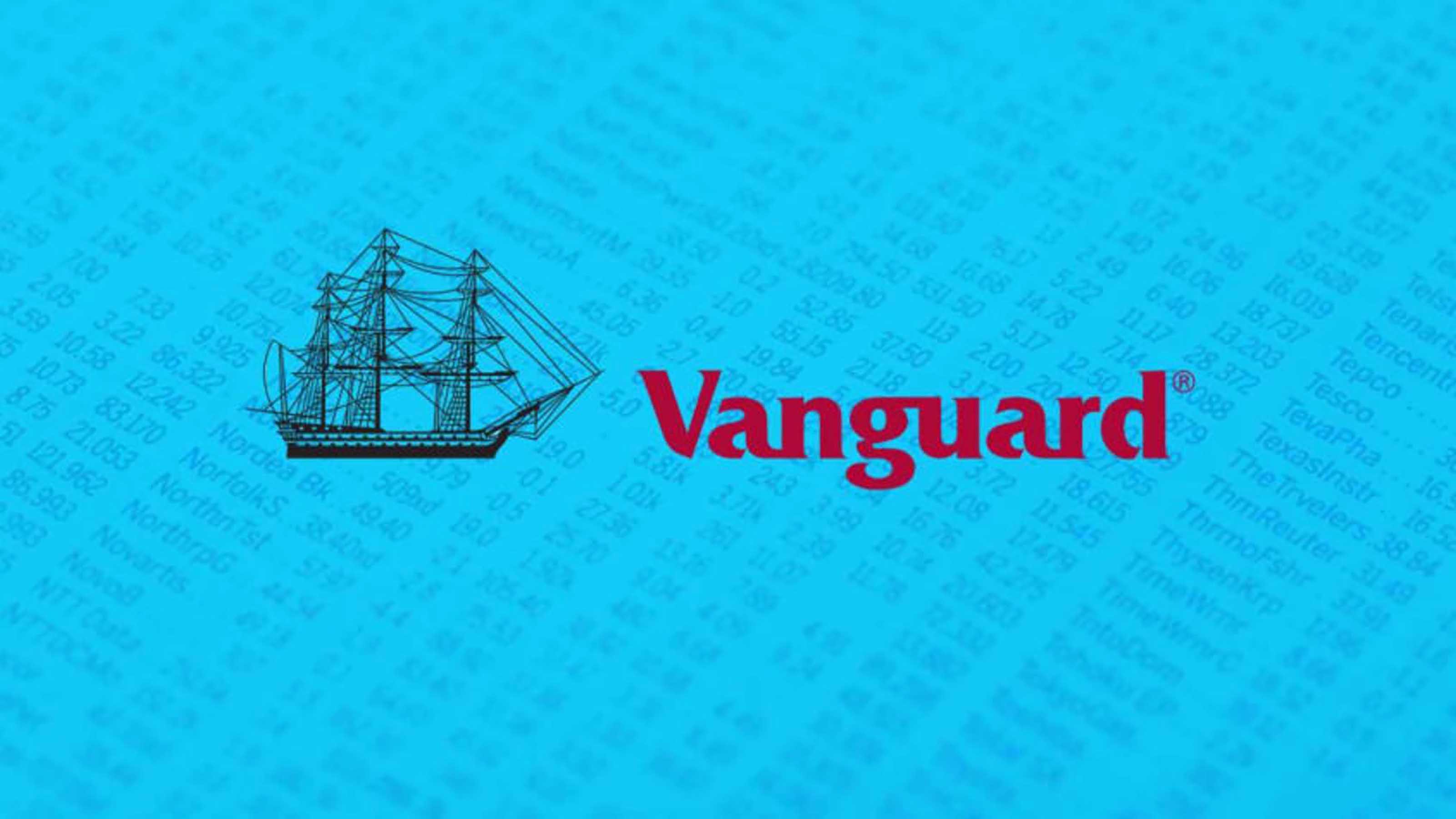The Best Vanguard Funds for 401(k) Retirement Savers
Vanguard funds account for roughly a third of the 100 most popular 401(k) retirement products. We rank Vanguard's best actively managed funds, including its target-date solutions.


Profit and prosper with the best of Kiplinger's advice on investing, taxes, retirement, personal finance and much more. Delivered daily. Enter your email in the box and click Sign Me Up.
You are now subscribed
Your newsletter sign-up was successful
Want to add more newsletters?

Delivered daily
Kiplinger Today
Profit and prosper with the best of Kiplinger's advice on investing, taxes, retirement, personal finance and much more delivered daily. Smart money moves start here.

Sent five days a week
Kiplinger A Step Ahead
Get practical help to make better financial decisions in your everyday life, from spending to savings on top deals.

Delivered daily
Kiplinger Closing Bell
Get today's biggest financial and investing headlines delivered to your inbox every day the U.S. stock market is open.

Sent twice a week
Kiplinger Adviser Intel
Financial pros across the country share best practices and fresh tactics to preserve and grow your wealth.

Delivered weekly
Kiplinger Tax Tips
Trim your federal and state tax bills with practical tax-planning and tax-cutting strategies.

Sent twice a week
Kiplinger Retirement Tips
Your twice-a-week guide to planning and enjoying a financially secure and richly rewarding retirement

Sent bimonthly.
Kiplinger Adviser Angle
Insights for advisers, wealth managers and other financial professionals.

Sent twice a week
Kiplinger Investing Weekly
Your twice-a-week roundup of promising stocks, funds, companies and industries you should consider, ones you should avoid, and why.

Sent weekly for six weeks
Kiplinger Invest for Retirement
Your step-by-step six-part series on how to invest for retirement, from devising a successful strategy to exactly which investments to choose.
Chances are, even if you don't have your 401(k) parked at Vanguard, you have a fund or two from the Malvern, Pennsylvania-based fund company in your employer-sponsored retirement savings plan. That's because, according to financial data firm BrightScope, Vanguard funds are home to more 401(k) dollars than any other fund company in the country.
Among the 100 most widely held funds in 401(k) plans, roughly a third are Vanguard funds. So in this, our annual review of the biggest retirement savings plan, we take a closer look at some of Vanguard's most popular funds in 401(k) accounts, and rate them Buy, Hold or Sell.
Several are index funds, which we do not rate. It's not that we don't like them. We do. But decisions to buy an index fund generally hinge on whether you seek exposure to a certain part of the market. And for the most part, index funds fulfill their purpose – they track the indexes they mirror, less expenses.
But actively managed funds are different.
Some are better than others. Managers change, which can affect a fund's returns. Underperforming funds might be lagging for a good reason; say, its investment style is simply out of favor. That's why we analyze only the actively managed funds from Vanguard in this story. We also review the firm's two target-date series, Institutional Target Retirement and Target Retirement, which are among Vanguard's most popular 401(k) funds and are due to merge (more on that below). Both series hold mostly index funds, but active decisions are made on asset allocation.
This story – as well as our reviews of other big fund firms in the 401(k) world, including American Funds, Fidelity and T. Rowe Price, as well as all Buy-worthy funds across all mutual fund families – is meant to help savers make good choices among the funds available in their 401(k) plan.
Let's look at some of the best Vanguard funds for your 401(k) plan … and weed out a few lesser options, too. For simplicity's sake, and to make comparisons more even, where possible we cite data and returns for Vanguard's Investor share class, which is most accessible to retail investors. Returns are through April 30.
Returns and data are as of April 30. In each review, we refer to the symbol, returns and expense ratio of the share class that is available to most investors. The reason for this is that the share classes of specific funds offered in 401(k) plans can vary, depending in part on the size of the plan.

Vanguard Equity-Income: BUY
- Symbol: VEIPX
- Expense ratio: 0.28%
- 1-year return: 7.5%
- 3-year annualized return: 11.3%
- 5-year annualized return: 10.9%
- 10-year annualized return: 11.9%
- Rank among the top 401(k) funds: #52
- Best for: Investors looking for a steady dividend fund
We are longtime fans of Vanguard Equity-Income. It has been a member of the Kiplinger 25, our favorite actively managed no-load funds, since early 2017. Over the past five years, the fund has consistently turned in above-average returns with below-average volatility.
But we're watching VEIPX closely now because a key manager is leaving. Wellington Management's Michael Reckmeyer, who manages two-thirds of the fund's assets, is retiring in June 2022.
Matthew Hand, a longtime member of VEIPX's analyst team, has been tapped to take over. Back in 2018, Hand shed some of his analytical duties to work more closely with Reckmeyer and learn the art of portfolio building and risk management. Hand says that much will stay the same at Equity-Income.
"Mike and I both grew up at Wellington," he says. "We are extraordinarily aligned and share the same investment philosophy."
Manager shifts have taken place at the fund's other subadviser, Vanguard's in-house quantitative equity group, too. Those changes are less worrisome, however, because the quantitative stock group relies on a complex algorithm to choose stocks. That computer model shouldn't change with the new guard. Plus, the quant group runs just one-third of the portfolio.
VEIPX, which stands among the best Vanguard funds that are popular in 401(k) plans, might not beat the S&P 500 over time. But it's not too far behind, and the ride is smoother than that of the broad index. Plus, the fund's dividend yield, 2.3%, beats the current 1.5% yield of the S&P 500.

Vanguard Explorer: BUY
- Symbol: VEXPX
- Expense ratio: 0.40%
- 1-year return: -14.6%
- 3-year annualized return: 10.4%
- 5-year annualized return: 12.8%
- 10-year annualized return: 12.4%
- Rank among the top 401(k) funds: #78
- Best for: Aggressive growth-minded investors looking for exposure to small-company stocks
Vanguard Explorer holds stock in growing small caps and mid-caps, which have taken it on the chin in recent months. Over the past 12 months, VEXPX has lost 14.6%. But most things are relative in the investing world, and that beats the Russell 2000, which lost 16.9%.
Explorer is one of a handful of small-company stock funds that rank among the top 100 401(k) funds. But while many are index-based, this one is actively managed. In fact, in keeping with the Vanguard way, many stock pickers have a hand in the Explorer fund.
Managers from five different firms divided the fund's assets and work independently, applying their own process to picking stocks:
- Wellington Management, for example, picks stocks with higher growth potential relative to their valuations.
- ClearBridge Investments focuses on industry leaders that generate substantial free cash flow (money left over after necessary expenses to sustain the business) and make wise capital allocation decisions.
- ArrowMark Colorado Holdings prefers high-quality companies with strong competitive advantages in industries with high barriers to entry.
- Stephens Investment Management and Vanguard's quantitative equity group round out the investing subadvisory team.
Multiple changes in subadvisory managers over the years – and even recently – make it difficult to confidently assess how the fund will fare over a full market cycle. Although seven of the five managers have been in place for five years, putting aside a tumultuous 2020, they haven't been tested in a prolonged bear market yet.
Regardless, the hodgepodge management team results in returns that are just above average. In each of the five full calendar years since the start of 2017, Vanguard Explorer has outpaced the Russell 2000. In other words, you have been better off in VEXPX than in a small-company index fund over that time.
The portfolio is enormous, with close to 750 stocks, and the fund has $20.2 billion in total assets, which makes Vanguard Explorer the biggest actively managed small-company fund in the country.
Just bear in mind: Because small-cap stocks tend to be more volatile than large caps, VEXPX should be a held as a complement to a core holding in a large-company stock fund or a total stock market fund.

Vanguard Inflation-Protected Securities: HOLD
- Symbol: VIPSX
- Expense ratio: 0.20%
- 1-year return: 0.5%
- 3-year annualized return: 5.2%
- 5-year annualized return: 3.7%
- 10-year annualized return: 2.1%
- Rank among the top 401(k) funds: #76
- Best for: Investors looking to hedge inflation
With inflation running higher than it has in nearly a decade, Treasury Inflation-Protected Securities (TIPS) are more in the news. Annual inflation for the 12-month period ending in March, the most recent data available, was 8.5%. That's significantly higher than the roughly 2% rate of annual inflation over each the past five calendar years.
Investors who want to stay ahead of rising consumer prices typically turn to TIPS because on top of a guaranteed rate of interest, the principal of the bond moves in step with the rate of inflation.
Yields on TIPS have been negative for months, though they're inching closer to positive territory. The current yield on Vanguard Inflation-Protected Securities, for instance, is negative 0.99% (in October 2021, it was negative 1.7%). That doesn't mean, however, that you will earn a negative return in this fund. In 2021, for instance, VIPSX returned 5.6%.
That said, 2022 has been challenging for this Vanguard fund: Since the start of the year, VIPSX has lost 6.5%, lagging its inflation-protected bond fund peers by just over 1 percentage point. About 14% of the fund's assets hold debt with 20- to 30-year maturities. That's a bigger stake than its peer inflation-protected bond funds hold, and it proved a drag as interest rates rose (bond prices and interest rates move in opposite directions) because long-term bonds are more sensitive to interest rate shifts than short-term bonds.
We've rated this popular Vanguard 401(k) fund a Hold, however, because longtime fund manager Gemma Wright-Casparius retired in late 2021. John Madziyire became a manager of VIPSX in November 2021 (the two overlapped for a few weeks). This is his first post as sole manager at Vanguard.

Vanguard International Growth: BUY
- Symbol: VWIGX
- Expense ratio: 0.43%
- 1-year return: -28.7%
- 3-year annualized return: 8.7%
- 5-year annualized return: 10.4%
- 10-year annualized return: 9.1%
- Rank among the top 401(k) funds: #36
- Best for: Foreign stock exposure
We have long lauded Vanguard International Growth as a superstar for delivering above-average returns with below-average risk. But we're feeling a little cautious these days because a key manager left in April 2022. Another worry is the current war between Russia and Ukraine and how that might affect the European economy and the stock market.
Investment firm Baillie Gifford is one of two subadvisers that run VWIGX, but it manages the biggest chunk (70%) of the assets. And James Anderson, a manager since 2003, is leaving. Comanager Thomas Coutts remains, however, and he has been in place since late 2016. Lawrence Burns was named comanager in 2020.
Managers from Schroders run the remaining 30%. That won't change, and Simon Webber has been with the fund since late 2009, but he does have a new comanager in James Gautrey, who joined in late 2020.
The two firms, both U.K.-based, have slightly different approaches to picking growth stocks; Vanguard chose them to complement each other. Baillie Gifford is willing to pay up for stocks with explosive growth. Schroders' ideal stock is underappreciated but growing fast.
VWIGX's portfolio holds roughly 120 stocks, mostly in large companies domiciled in developed countries. The crisis in Ukraine has hobbled European stocks, which comprise more than 40% of the portfolio. As a result, top holdings MercadoLibre (MELI), Dutch payment platform Adyen (ADYEY) and French-based luxury goods group Kering (PPRUY) have suffered double-digit declines, which has hurt the fund's performance.
Another trouble spot has been China, almost halfway around the world from Ukraine. China stocks make up 13% of the assets and some have been a real drag. Chinese internet powerhouses Tencent Holdings (TCEHY) and Alibaba Group (BABA), for example, are among the portfolio's top 10 holdings and make up more than 6% of assets. Those stocks have underperformed recently because of a regulatory crackdown on tech firms and other shake ups in China.
VWIGX has long been one of our favorite international stock funds. But we'll be watching it carefully over the next year or two, as the fund navigates a choppy international market environment.

Vanguard Primecap: BUY
- Symbol: VPMCX
- Expense ratio: 0.38%
- 1-year return: -5.1%
- 3-year annualized return: 11.9%
- 5-year annualized return: 13.2%
- 10-year annualized return: 15.1%
- Rank among the top 401(k) funds: #7
- Best for: A core holding for aggressive investors with long time horizons
Vanguard Primecap was closed to all investors long ago, but if it's offered in your 401(k) plan, you can still put away up to $25,000 a year. Consider yourself lucky. Primecap is one of the best Vanguard funds offered in 401(k) plans, and it's run by five of the best stock-pickers in the country.
The managers – Theo Kolokotrones, Joel Fried, Alfred Mordecai, M. Mohsin Ansari and James Marchetti – work independently managing their own slice of the fund's assets. But they each aim to invest in growing companies that trade at bargain prices. In particular, they look for a catalyst – a new product, new executives at the helm or a restructuring – that they think will push a stock price higher over the next three to five years.
Once they buy a stock, they tend to hang on. The fund's 5% turnover ratio is a fraction of the typical 69% turnover of its peers, funds that invest in large, growing companies.
"Because the Primecap team is buying stocks facing near-term uncertainty, it often takes time for their ideas to work out," says Dan Wiener, editor of The Independent Adviser for Vanguard Investors. "But in contrast to many other growth managers, the Primecap team is willing to wait, and on average holds onto a stock for a decade."
VPMCX's record isn't blemish-free, of course. Though its 10-year annualized record keeps pace with the S&P 500, Vanguard Primecap has lagged the index in five of the past 10 full calendar years, most recently in 2020. A sizable helping of airline stocks – including Southwest Airlines (LUV), United Airlines (UAL) and American Airlines (AAL) – hurt the fund when the economy shut down for COVID-19.
But over the long haul, Primecap has been one of the best Vanguard funds you could hold. Shareholders are certainly richer. A $10,000 investment 20 years ago in VPMCX would be worth more than $81,000 today; a similar investment in Vanguard 500 Index fund would be worth $58,000. And that assumes a lump-sum investment at the start. It doesn't include any regular monthly 401(k) contributions you might make.
This is an aggressive fund, best for investors with long time horizons and a stomach for some volatility.

Vanguard U.S. Growth: BUY
- Symbol: VWUSX
- Expense ratio: 0.38%
- 1-year return: -23.8%
- 3-year annualized return: 11.8%
- 5-year annualized return: 15.0%
- 10-year annualized return: 14.1%
- Rank among the top 401(k) funds: #91
- Best for: Steely investors with a long time horizon who want exposure to fast-growing, large companies and can withstand a lot of volatility
Vanguard U.S. Growth put up some good returns in certain years – lately, a 59% return in 2020 – but the fund has faltered, along with the broad market, recently. Over the past 12 months, the fund has logged a 21.7 loss, more than the 1.0% gain in the S&P 500.
Growth stocks are out of favor now, but many of them are vital players in long-term growth trends, such as the rollout of 5G, cloud computing, machine learning and the general digitalization of the entire world. Shares in these companies will rise again, when uncertainty about inflation, interest rates and Ukraine slip away.
A bigger worry is Vanguard's changes among the fund's management team. Eight partial manager changes have occurred at the fund since 2010, according to Morningstar. The latest one took place in early 2021. Vanguard jettisoned investment firm Jackson Square as a manager after 11 years. Four subadvisers remain: Wellington Management, Jennison Associates and Baillie Gifford – each runs roughly 28% of assets – and Vanguard's in-house quantitative equity group, which runs the rest. Recently, the quant group has undergone its own reshuffling; longtime members of the team James Stetler and Binbin Guo both retired.
All of that moving around of parts is troubling, and it makes assessing the long-term merits of a fund tricky. But based on more recent performance, things are going swimmingly. VWUSX's five-year annualized return beats the S&P 500, most of its peer group and even Vanguard Primecap, the firm's venerated growth-company fund. It has been a bumpy ride, though. Over the past five years, this Vanguard fund has experienced above-average volatility compared with all large-company growth funds.
But … if U.S. Growth is the only actively managed large-company growth fund offered in your 401(k), and you have the stomach for a lot of volatility, it's a solid option.

Vanguard Wellesley Income: BUY
- Symbol: VWINX
- Expense ratio: 0.23%
- 1-year return: -2.8%
- 3-year annualized return: 5.4%
- 5-year annualized return: 5.7%
- 10-year annualized return: 6.3%
- Rank among the top 401(k) funds: #96
- Best for: Conservative investors
Vanguard Wellesley Income celebrated its 50th anniversary last July. But it's not the oldest stock-and-bond fund in Vanguard's stable. That honor goes to Vanguard Wellington, which we'll get to momentarily.
But unlike Wellington, Wellesley Income tilts more toward bonds than stocks. Two-thirds of its assets are bonds, while the rest is stocks. (Wellington holds more stocks than bonds).
The hefty bond holding makes for a steady fund. Over the past half century, according to Dan Wiener, editor of The Independent Adviser for Vanguard Investors, Wellesley Income's "standout feature is its steadiness."
Steadiness and muted returns often go hand in hand, however. Over the past 15 years, VWINX's 6.3% annualized return doesn't keep pace with the broad market, but it beats 96% of its peers: funds that allocate 30% to 50% of assets to stocks.
Michael Reckmeyer, longtime manager of the stock side of the portfolio, is retiring in June. Matthew Hand is replacing him (Hand is also Reckmeyer's replacement at Vanguard Equity-Income, which we profiled above). We're confident about Wellington Management, the firm behind the fund, and its ability to find new talent and groom them.
Loren Moran picks the bonds. She's a veteran at Wellington Management and has been a comanager on the bond portion of this fund since 2017.
Wellesley Income is one of the best Vanguard funds that are commonly available to 401(k) investors, but given the heavy load of bonds in its portfolio, it's best suited to conservative investors.

Vanguard Wellington: BUY
- Symbol: VWELX
- Expense ratio: 0.24%
- 1-year return: -3.2%
- 3-year annualized return: 8.3%
- 5-year annualized return: 8.5%
- 10-year annualized return: 9.1%
- Rank among the top 401(k) funds: #10
- Best for: Moderately conservative investors who seek an all-in-one portfolio that holds stocks and bonds
Vanguard Wellington has a long history and a standout long-term record. Founded in 1929, it is the nation's oldest balanced fund. Roughly two-thirds of the fund is stocks; rest of the portfolio is devoted to bonds.
VWELX has undergone a bit of a changing of the guard at the top, along with a couple of other funds on this list. Daniel Pozen, a comanager since 2019, took over as sole manager of the stock side of the fund in July 2020; Loren Moran, a comanager on the bond side since 2017, is now the fund's sole bond picker after a comanager retired in June 2021.
On the stock side, Pozen favors high-quality large companies with a competitive edge over peers. Alphabet (GOOGL), Microsoft (MSFT) and Apple (AAPL) were top holdings at last report. He has trimmed the number of stocks in the portfolio from the high 80s to roughly 70 since taking over.
"There are only so many great ideas in the market at any time that we should lean into the best ideas and make sure they can impact shareholders' investment outcomes," Pozen says.
Stocks aren't required to pay a dividend to be considered for the portfolio, but roughly 85% of the stocks in the fund do.
On the bond side, Moran tilts heavily toward high-quality corporate debt, but spices up returns with a smattering of investment-grade asset-backed securities and taxable municipal bonds. She holds just over one-quarter of the fixed-income portfolio in Treasuries and agency bonds to maintain liquidity – easy access to cash – in VWELX. That's less than the typical 37% of assets that peer balanced funds hold on average.
Vanguard Wellington is a moderate-risk investment choice because it holds both stocks and bonds. But it still packs a punch. Compared with other balanced funds, VWELX boasts above-average returns and below-average volatility. Over the past five years – which includes the period that Moran has been with the fund – Vanguard Wellington beats 82% of its peers with an 8.5% annualized return. It yields 2.1%.

Vanguard Windsor II: HOLD
- Symbol: VWNFX
- Expense ratio: 0.34%
- 1-year return: -0.8%
- 3-year annualized return: 13.4%
- 5-year annualized return: 11.6%
- 10-year annualized return: 11.8%
- Rank among the top 401(k) funds: #35
- Best for: Investors seeking out value-priced stocks
We're upgrading the recommendation on Vanguard Windsor II this year a tad, to a Hold from a Sell.
In last year's review of Vanguard's most popular 401(k) funds, we said that investors who had chosen an S&P 500 index fund over Vanguard Windsor II would have done better over the past decade. That's still true.
But context matters. VWNFX focuses on value-priced stocks, and those stocks have lagged growthier shares by a wide margin. Plus, relative to its peers – funds that invest in value-priced large companies – Vanguard Windsor II is starting to shine brightly. Over the past three years, the fund's 13.4 % annualized return ranks among the top 9% of all large value funds.
A change in management might be behind the fund's recent fortunes. In late 2019, Vanguard dismissed two subadvisers and added a new one: Aristotle Capital Management. Aristotle joins three other firms: Lazard Asset Management, Sanders Capital and Hotchkis & Wiley Capital Management.
Each firm has a value bent but slightly different approaches. Lazard focuses on highly profitable companies trading at low relative valuation. Hotchkis & Wiley favors measures such as tangible assets, sustainable cash flow and the potential for business performance to improve. Sanders looks for companies that trade at a discount to its assessment of expected total return. And Aristotle likes to invest in high-quality businesses all over the world that trade at attractive prices and that have a catalyst to kick share prices up over a three- to five-year period. The firms run slivers of the portfolio independently. As a whole, the fund holds roughly 180 stocks.
Since adding Aristotle, the fund has taken a heavier tilt toward technology from the high-single digit exposure of previous years, says Morningstar Analyst Alec Lucas. At last report, tech stocks made up 20% of the fund. Alphabet, Amazon.com (AMZN) and Microsoft sit near the top of the portfolio.
The good news: That was a boon in 2020 and 2021. The bad news: VWNFX is now a tad growthier than some of its large-company value fund peers. And lately as growth stocks have floundered, Windsor II's performance relative to peers has suffered. Its year-to-date return for the first four months of 2022 ranks among the bottom 96% of large-company value funds. But Windsor II still retains a distinct value profile: The portfolio's price-to-earnings (P/E) ratio of 16 is higher than the 14 P/E of other large-value funds, but it's a far cry from the 26 P/E ratio of the typical growth fund.
We're more optimistic about the future of Windsor II, but we're still watching it closely, which explains the Hold recommendation.

Vanguard Target Retirement Target-Date Series: BUY
- Rank among the top 401(k) funds: #11 (VTHRX, 2030); #12 (VTTVX, 2025); #15 (VTTHX, 2035); #19 (VFORX, 2040); #23 (VTWNX, 2020), #25 (VTIVX, 2045), #29 (VFIFX, 2050); #65 (VFFVX, 2055); #82 (VTXVX, 2015); #88 (VTINX, Income)
- Best for: Savers who want to make one investment decision and leave the rest to the experts
Target-date funds hold stocks and bonds and are designed to help people invest appropriately for retirement. Experts make the investing decisions, rebalance the portfolio when needed and shift holdings to a more conservative mix as you age. When the fund hits its target year, the work doesn't stop.
Vanguard Target Retirement funds continue to shift their blend of stocks and bonds for seven years after the target year. At that point, the money in the fund automatically rolls into Vanguard Target Retirement Income, which holds a static allocation of roughly 30% stock and 70% bond.
A small change is ahead for Vanguard's target-date funds. The firm actually has two target-date series: the Institutional Target Retirement funds and the Target Retirement funds. They are run with exactly the same strategy, same glide path (the blend between stocks and bonds that shifts over time as the target date nears). But Institutional Target Retirement was created specifically for defined-contribution plans; Target Retirement is available to retail investors as well as in some defined contribution plans. Come February 2022, however, the Institutional series will be absorbed into the Target Retirement series and expense ratios across all target-year funds will fall to 0.08%.
That's a bonus for retirement savers, some more than others. Vanguard Target Retirement 2045, 2050 and 2055 currently charge 0.15% in annual expenses, so this fee cut represents a nearly 50% drop. Expenses aren't uniform across the target-date series currently, so shareholders in the nearer dated funds stand to save a little less. The Investor share class of Vanguard Target Retirement 2030, for instance, charges 0.14% per year.
In any case, Vanguard fees are already about 75% cheaper than most of its peers – one feature we've always liked about the series.
Another thing this series has going for it is simplicity. Vanguard Target Retirement funds hold just five to six index funds in their portfolios, depending on the target year. Four of the funds are total market funds – Vanguard Total Stock Market Index (VTSAX), Vanguard Total Bond Market Index (VBTLX), Vanguard Total International Stock Index (VTIAX) and Vanguard Total International Bond Index (VTABX). The series also includes a short-term inflation-protected securities index fund in the nearer-dated years.
Investors should feel confident choosing a Vanguard Target Retirement fund for their retirement savings. These products are straightforward, low-cost and do all of the work for you.
Learn more about Vanguard's Target Retirement Funds at the provider site.
Profit and prosper with the best of Kiplinger's advice on investing, taxes, retirement, personal finance and much more. Delivered daily. Enter your email in the box and click Sign Me Up.

Nellie joined Kiplinger in August 2011 after a seven-year stint in Hong Kong. There, she worked for the Wall Street Journal Asia, where as lifestyle editor, she launched and edited Scene Asia, an online guide to food, wine, entertainment and the arts in Asia. Prior to that, she was an editor at Weekend Journal, the Friday lifestyle section of the Wall Street Journal Asia. Kiplinger isn't Nellie's first foray into personal finance: She has also worked at SmartMoney (rising from fact-checker to senior writer), and she was a senior editor at Money.
-
 Ask the Tax Editor: Federal Income Tax Deductions
Ask the Tax Editor: Federal Income Tax DeductionsAsk the Editor In this week's Ask the Editor Q&A, Joy Taylor answers questions on federal income tax deductions
-
 States With No-Fault Car Insurance Laws (and How No-Fault Car Insurance Works)
States With No-Fault Car Insurance Laws (and How No-Fault Car Insurance Works)A breakdown of the confusing rules around no-fault car insurance in every state where it exists.
-
 7 Frugal Habits to Keep Even When You're Rich
7 Frugal Habits to Keep Even When You're RichSome frugal habits are worth it, no matter what tax bracket you're in.
-
 States That Tax Social Security Benefits in 2026
States That Tax Social Security Benefits in 2026Retirement Tax Not all retirees who live in states that tax Social Security benefits have to pay state income taxes. Will your benefits be taxed?
-
 Best Mutual Funds to Invest In for 2026
Best Mutual Funds to Invest In for 2026The best mutual funds will capitalize on new trends expected to emerge in the new year, all while offering low costs and solid management.
-
 What Fed Rate Cuts Mean For Fixed-Income Investors
What Fed Rate Cuts Mean For Fixed-Income InvestorsThe Fed's rate-cutting campaign has the fixed-income market set for an encore of Q4 2024.
-
 The Most Tax-Friendly States for Investing in 2025 (Hint: There Are Two)
The Most Tax-Friendly States for Investing in 2025 (Hint: There Are Two)State Taxes Living in one of these places could lower your 2025 investment taxes — especially if you invest in real estate.
-
 The Final Countdown for Retirees with Investment Income
The Final Countdown for Retirees with Investment IncomeRetirement Tax Don’t assume Social Security withholding is enough. Some retirement income may require a quarterly estimated tax payment by the September 15 deadline.
-
 What to Do With Your Tax Refund: 6 Ways to Bring Growth
What to Do With Your Tax Refund: 6 Ways to Bring GrowthUse your 2024 tax refund to boost short-term or long-term financial goals by putting it in one of these six places.
-
 What Does Medicare Not Cover? Eight Things You Should Know
What Does Medicare Not Cover? Eight Things You Should KnowMedicare Part A and Part B leave gaps in your healthcare coverage. But Medicare Advantage has problems, too.
-
 12 Great Places to Retire in the Midwest
12 Great Places to Retire in the MidwestPlaces to live Here are our retirement picks in the 12 midwestern states.
